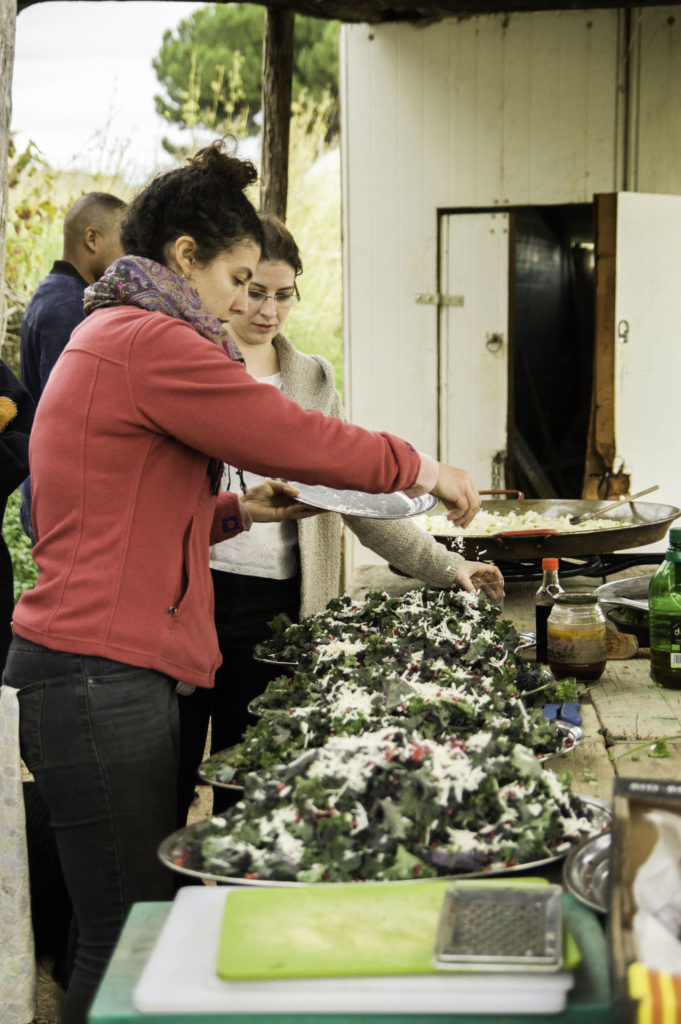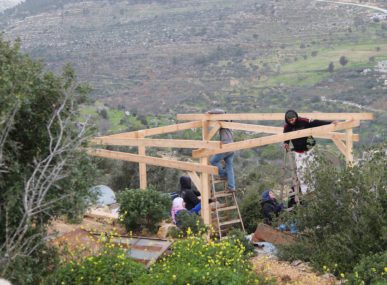Making sustainable shifts sustainable:
For Mayya, one of the most rewarding parts of Foodisms has been seeing event attendees introduce sustainable food changes into their own lives. “People message me and say they’ve just made their first order from a farm and ask for the recipe of something we cooked during Feasts on a Farm,” she says.
She ultimately envisions Foodisms serving as the meeting point between producers, retailers, and consumers, something which has already begun. For example, Espigoladors, the Barcelona-based social enterprise that was included in the Urban Food Challenge, occasionally collaborates with Aurora del Camp, the Feasts on a Farm location, to reduce food waste by turning surplus crops into social kitchen meals and preserves.
This is the new food cycle: individuals, providers, and producers working in tandem to make slow, sustainable shifts to their treatment of food.
Mayya is the first to admit that a purely sustainable lifestyle cannot happen overnight. “I’m not a 100% sustainable person, but I strive to be through the changes I’m layering. Change is a step-by-step process, and if you introduce it all at once you’re at a higher risk of failing,” she explains.
Everyone will have their own process, but she says the first step is to self-reflect and ask what you could give up in order to be a more conscious consumer. This could be anything — a decision to only buy in-season fruits and vegetables; the choice to buy organic for produce where you’ll eat the skin; the switch to buying eggs from your local farmer’s market. For her latest personal shift, Mayya is in the midst of finding a place to bulk source her grains.
When it comes to connecting consumers with the producers behind their food, experts say Foodisms is onto something. “Educating yourself about the story behind the produce on the supermarket shelf is a first step,” says Dr. Ferne Edwards, a Postdoctoral Research Fellow with SHARECITY, a project that considers what we eat a political act. “Food is more than a nutritional fix — it’s also about sharing a meal, bouncing ideas off each other, and […] understanding the effort, time, and value that goes into what we eat every day.”
Regardless of whether someone has participated in a Foodisms event, or just stopped to talk to her on the street, Mayya is trying to switch people’s mindsets from one of “I eat” and “I buy” to more proactive, responsible consumer behavior.
“I think a sustainable consumer is somebody who will do whatever is within their power to make better food choices, taking into account it’s not just them in the equation,” Mayya expands. “We are all part of the food chain and we need to understand what it means to actively be part of that puzzle.”
Website: http://foodisms.co
Facebook: www.facebook.com/foodisms
Instagram: www.instagram.com/foodisms.co
Photos: Courtesy of Samanta of WTF BCN
Story by: Hilary Duff and Kristin Hanes.








